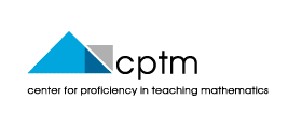

Situations Project


Situations Project
Our project, the Situations Project, has been a collaboration between mathematics educators at the Pennsylvania State University and the University of Georgia, supported by the National Science Foundation as work of our respective STEM centers.
Our project set out to characterize mathematical knowledge for teaching at the secondary level. Our approach began with the analysis of episodes observed in practice. These efforts led to the creation of a set of SITUATIONS, each with a prompt based on an observation from teaching practices, followed by discussion of mathematical foci that could be related to the prompt.
As we refined the set of situations, we developed a FRAMEWORK to give us a characterization of the mathematics that may be relevant to secondary mathematics teaching. Our work led us to propose the ideas of Mathematics Proficiency for Teaching as we have presented them in the most recent Framework document. The Situations and the Framework have gone through many refinements and benefitted from the discussions of these documents in three conferences.
Our webpage serves many purposes. It is a work space with links to the most current versions of the Framework and the Situations. It also serves as an archive for records and work in progress throughout the life of the project.
Framework for Mathematical Understanding for Secondary Teaching (MUST)
Formerly, Framework for Mathematical Proficiency for Teaching (MPT)
Situations
Master List -- Situations 1 -- n
Situations Prepared by Pawel Nazarewicz
Situations Folders
Table of Situation Prompts (PDF) (Word)
Content/Curriculum List Table
A Guide to Situations Use (PDF)(Word)
PUBLICATION PLANNING
October 13, 2011 Meeting in Reston
NSSM Facilitators Guide for Professional Development
Prototype Draft for Division Involving Zero 130219
Users Conference, University of Georgia, March 18-20, 2010
Articles and Presentations
ZDM Mathematics Education (2011) 43:979-992Mathematical Knowledge for Teaching at the Secondary Level Using Scenarios to Develop a Framework, American Mathematical Society, 2008 Fall Central Section Meeting,October 18, 2008
Developing a Framework for Mathematical Knowledge for Teaching at the Secondary Level , The Association of Mathematics Teacher Educators (AMTE) Eleventh Annual Conference, Irvine, CA, January 27, 2007
Situations Project Notes Atlanta PI meeting 080229 to 080301
Notes from our University of Maryland Meeting November 18, 2006
Definitions
o Prompt. The prompt sets the stage for the mathematics of the situation by briefly describing an event from teaching practice. Teaching practice includes preparing, implementing, and reflecting on classroom instruction. The instruction can be either in secondary mathematics or in the preparation and professional development of secondary teachers. (revised 28 Nov 06)
o Focus. A focus presents a particular aspect of mathematical knowledge for teaching at the secondary level that is relevant to the prompt. Mathematical knowledge for teaching includes concepts, processes, representations, solution methods, interpretations, types of reasoning, properties of mathematical objects, and definitions. (revised 28 Nov 06)
o Set of Foci. A set of foci provides examples of the range and depth of mathematical ideas associated with the prompt. (revised 28 Nov 06)Tentative Guidelines for foci: (added 28 Nov 06)
o Each focus should bring in something different;
o It is okay if foci have overlapping ideas;
o The foci should communicate to someone in our audience-someone who has an undergraduate degree in mathematics or mathematics education;
o The foci could possibly include cross-references to other foci in other situations;
o The foci can "unpack" the ideas that a mathematics educator might think of but that a mathematician might not-foci might make explicit relevant mathematical knowledge, draw attention to mathematical ideas that are implicit in the prompt;
o The goal is to try to emphasize mathematics relevant to the prompt as distinct from what a teacher might do in response to it.
o Commentary. The commentary describes the rationale for or explains the importance of the mathematics in the set of foci. (revised 28 Nov 06)
o Situation. The whole thing. The prompt, collection of foci, and commentary.
o Situation Archive. A collection of historical versions and discussion related to the situation. Since the situation will undergo revision, these accounts should include the reasons why changes were made or not made. This collection of comments and versions could be important units of analysis.
Document: Characteristics of Good SituationsWe have proposed Situation 35 as an example for discussion in the Telecom meeting. Click HERE for the details of our analysis.
Mathematics Situations in Teaching Guidelines
Is it real? Even if real, does it feel real? How much of an adaptation of real situations?
Realistic or real? Excerpted, edited, adapted, verbatim? Not necessarily representative - maybe unusual but important. Something rich that happened in a secondary classroom or outside of class that deals with secondary mathematics in the context of teaching. One or more of the foci should elaborate on what is correct about student thinking - need to connect to student thinking.
Agreed on so far?: Each situation contains a prompt that portrays a teaching scene (including departmental meeting, hallway conversation, etc.) from a classroom or outside of class in which some mathematical point related to the secondary curriculum is at issue. These scenes have actually happened.
Situations Template
This is a form that provides guidance on the format, construction of, and revision of Situations documents.
The content and opinions expressed on this Web page do not necessarily reflect the views or nor they endorsed by the University of Georgia or the University System of Georgia.